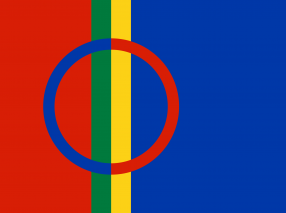2
History of the Federation of Ilisseia Past Regime
 Ilisseia during the military dictatorship that followed the military coup, the Constitution would only be in theory, having been modified by successive governmental decrees. However, being one of the flags of this coup against anti-parliamentarism - the date of the beginning of the first legislature of the National Assembly of the State - the idea of Parliament, as an organ of sovereignty, does not consist of political priorities of power.
Ilisseia during the military dictatorship that followed the military coup, the Constitution would only be in theory, having been modified by successive governmental decrees. However, being one of the flags of this coup against anti-parliamentarism - the date of the beginning of the first legislature of the National Assembly of the State - the idea of Parliament, as an organ of sovereignty, does not consist of political priorities of power.The single party during the State Regime
The political-constitutional regime of the period can be defined as antipartisan, anti-liberal and anti-parliamentary. A political force is created that assumes an exclusive role in the presentation of candidacies to the elective organs, aiming to abolish the mediation of the political parties.
The single political party is called the National Union. Political parties and associations opposed to the regime were outlawed. The political regime, constitutionalised, gradually clarifies the option for a system of concentration of powers in the President of the Council of Ministers. Following the candidacy of a opposition member to the Presidency of the Republic, which mobilized the support of all sectors of the opposition,the President of the Council of Ministers would announce a constitutional revision in which that election would no longer be made by direct suffrage to begin to do by an electoral college, in order to prevent the eventuality of the election of a President of the Republic that did not conform to the ideology of the regime.
The difficulties of the regime had been aggravated by the colonial problem, with compulsory military service having been progressively extended to a minimum of two years' stay in the African colonies.
Following the fall of the former leader from a chair, which leaves him mentally diminished, a person of his trust is appointed to the Presidency of the Council of Ministers, passing the single party to be designated by Popular National Action.
In the National Assembly elections, the person in charge, after the former leader fall, intends to revitalize the Popular National Action and rehearse a relative change in the regime, allowing competition from electoral commissions of the opposition, without, however, authorizing the constitution of parties, updating electoral rolls and restricting only one month before the elections. In the lists of the single party were included some independent personalities who would come to frame the so-called "liberal wing" of the National Assembly. These initiatives highlighted the rigidity of the regime and its inability to open and renew. Many of the MPs who had joined the "liberal wing" would eventually relinquish their mandates, notably after the constitutional revision, where any possibility of amending the constitutional principles of concentration of powers in the President of the Council of Ministers and the President of the Republic.
The Armed Forces Movement, with immediate and vast popular adhesion, put an end to the State regime that had dominated the country for almost half a century.











